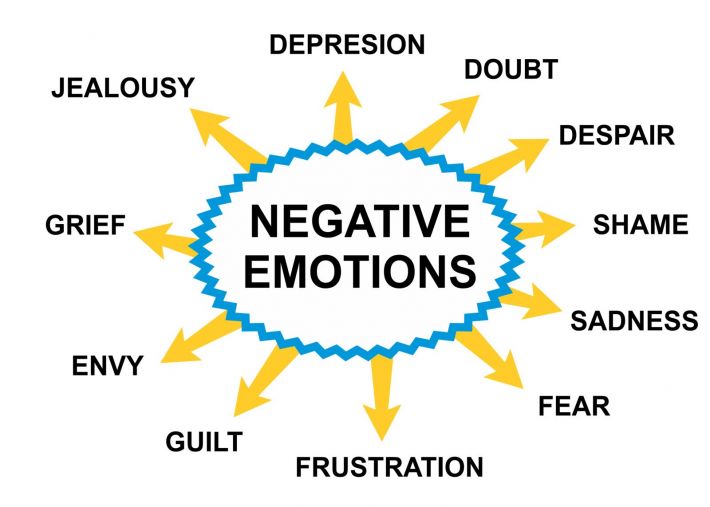- in Health and Wellness by Tony
Maintain a healthy mind.

A healthy mind is essential for overall well-being. It enables us to cope with the challenges of everyday life and maintain a positive outlook. But what does it mean to have a healthy mind?
It goes beyond just being free from mental illness; it encompasses having good mental health and emotional resilience. A healthy mind is characterised by clarity of thought, the ability to manage stress effectively, and the capacity to maintain balanced emotions.
More...
It involves cultivating positive habits such as regular exercise, proper nutrition, and quality sleep. Engaging in activities that stimulate the mind, such as reading or solving puzzles, can also contribute to a healthier mental state.
Additionally, fostering strong social connections and seeking support when needed are crucial aspects of maintaining a healthy mind. By prioritising our mental well-being and taking proactive steps to nurture our minds, we can lead more fulfilling lives and better navigate the complexities of today's world.
Emotional resilience

Emotional Resilience plays a vital role in maintaining a healthy mind. It allows us to bounce back from setbacks and adapt to changes with greater ease. Developing emotional resilience involves building skills such as self-awareness, self-regulation, and empathy.
It requires us to recognise and understand our emotions, manage them effectively, and have the ability to empathize with others. Cultivating emotional resilience can be achieved through various practices like mindfulness meditation, journaling, or seeking therapy. Additionally, creating a support system of trusted friends or family members who can provide emotional support during challenging times is crucial.
Building emotional resilience not only enhances our mental well-being but also helps us thrive in different aspects of life, including relationships and work. It allows us to approach difficulties with a positive mindset and find creative solutions to problems. So remember, maintaining a healthy mind goes beyond physical health; it requires nurturing our emotional well-being too.
Positive habits

Positive habits play a significant role in maintaining a healthy mind. They provide a foundation for overall mental well-being and contribute to a more balanced and fulfilling life. Adopting regular exercise as a habit not only benefits physical health but also has profound effects on the mind.
Physical activity releases endorphins, which are known to boost mood and reduce stress levels. It can also improve sleep quality, increase cognitive function, and enhance self-esteem.
Another vital habit is proper nutrition, as our brain needs essential nutrients to function optimally. Eating a balanced diet that includes fruits, vegetables, whole grains, lean proteins, and healthy fats can support brain health and improve mental clarity.
Quality sleep is equally important for maintaining a healthy mind. It allows the brain to rest and recharge, facilitating better cognitive performance and emotional regulation during waking hours.
By adopting these positive habits into our daily routines, we can significantly contribute to our mental well-being and experience greater resilience in the face of challenges.
Maintain balanced emotions

Maintaining balanced emotions is another crucial aspect of having a healthy mind. Emotions are an integral part of our human experience, but when they become overwhelming or imbalanced, they can negatively impact our mental well-being.
Having the ability to recognise and regulate our emotions is key to maintaining emotional balance. This involves being aware of our feelings, understanding their triggers, and finding healthy ways to manage them.
Techniques such as deep breathing exercises, mindfulness practices, or engaging in creative outlets like art or music can help in regulating emotions effectively. It's also important to remember that experiencing a wide range of emotions is normal and part of being human.
However, it's essential to avoid suppressing or ignoring negative emotions, as this can lead to further distress in the long run. Instead, acknowledging and expressing these emotions in a healthy manner, such as through journaling or talking with a trusted friend or therapist, can contribute significantly to maintaining emotional equilibrium.
By striving for balanced emotions and practising emotional self-care, we can cultivate a healthier mind and better navigate life's ups and downs with resilience and grace.
Negative emotions

Negative emotions are an inevitable part of life, and learning to navigate them is crucial for maintaining a healthy mind. While it may be tempting to avoid or suppress these emotions, it is essential to acknowledge and process them in a healthy way.
Ignoring negative emotions can lead to increased stress, anxiety, and even depression. Instead, allow yourself to fully experience these emotions and explore their underlying causes. This self-reflection can provide valuable insights into your thoughts, beliefs, and triggers.
It's important to remember that negative emotions serve a purpose; they can alert us to potential threats or indicate areas of our lives that need attention or change. By embracing negative emotions and using them as opportunities for growth and self-improvement, we can develop greater emotional resilience and enhance our overall well-being.
Seeking support from friends, family, or professionals during challenging times can also be immensely helpful in navigating negative emotions effectively.
Remember that it's okay to ask for help when needed, and that you're not alone in your struggles.
Prioritising our mental well-being

Prioritising our mental well-being is of utmost importance in today's fast-paced and demanding world. It goes beyond just physical health; it requires nurturing our emotional well-being too.
Emotional resilience plays a vital role in maintaining a healthy mind. It allows us to bounce back from setbacks and adapt to changes with greater ease. Developing emotional resilience involves building skills such as self-awareness, self-regulation, and empathy.
Cultivating emotional resilience can be achieved through various practices like mindfulness meditation, journaling, or seeking therapy. Additionally, positive habits such as regular exercise, proper nutrition, and quality sleep contribute significantly to our mental well-being.
Maintaining balanced emotions is another crucial aspect of having a healthy mind. Recognizing and regulating our emotions through techniques like deep breathing exercises or engaging in creative outlets can help maintain emotional balance.
By prioritising our mental well-being and taking proactive steps to nurture our minds, we can lead more fulfilling lives and better navigate the complexities of today's world with grace and resilience.
Emotional self-care

Emotional self-care is an essential practice for maintaining a healthy mind. It involves taking intentional steps to prioritize and nurture our emotional well-being. Just as we take care of our physical health through exercise and nutritious eating, we must also tend to our emotional needs.
This can include engaging in activities that bring us joy and relaxation, such as reading a book, taking a bubble bath, or spending time in nature. It also involves setting boundaries and saying no when necessary, as well as practising self-compassion and being kind to ourselves.
Emotional self-care means recognizing when we need a break or some alone time and giving ourselves permission to recharge. It's about being mindful of our thoughts and feelings, acknowledging them without judgment, and finding healthy ways to cope with stress or difficult situations.
By prioritising emotional self-care, we can better manage our emotions, reduce burnout, and enhance overall mental well-being.
Remember, taking care of your emotions is not selfish; it's necessary for leading a balanced and fulfilling life.
Accept who you are

Accepting who you are is a vital part of personal growth and self-acceptance. No one is perfect, nor should we aim to be. It allows you to embrace your unique qualities and celebrate the individual that you are.
When you accept yourself, you become more confident and comfortable in your own skin. It frees you from the need to conform to societal expectations or seek validation from others. Acceptance also enables you to focus on your strengths and work towards your goals without being hindered by self-doubt or self-judgment.
Moreover, accepting who you are promotes a positive mindset and improves overall well-being. It is important to remember that nobody is perfect, and we all have flaws and imperfections. Embracing these imperfections as part of our identity is what makes us truly human.
So, take a moment to reflect on yourself, acknowledge your strengths, accept your weaknesses, and let go of any self-imposed limitations. Accept who you are, for it is the first step towards personal fulfilment and happiness.
conclusion

In conclusion, maintaining a healthy mind requires a multifaceted approach that encompasses emotional self-care, prioritising mental well-being, and cultivating emotional resilience.
By acknowledging and navigating negative emotions, seeking support when needed, and using these emotions as opportunities for growth, we can develop greater emotional resilience and enhance our overall well-being.
Prioritising our mental well-being goes beyond physical health and involves nurturing our emotional well-being through practices like mindfulness meditation, journaling, and seeking therapy. Positive habits such as regular exercise, proper nutrition, and quality sleep also contribute significantly to our mental well-being.
Additionally, emotional self-care is crucial in maintaining a healthy mind by engaging in activities that bring joy and relaxation, setting boundaries, practising self-compassion, and being mindful of our thoughts and feelings. By incorporating these practices into our lives, we can lead more fulfilling lives and navigate the complexities of today's world with grace and resilience.
Emotional self-care is also essential in maintaining a healthy mind. It involves taking intentional steps to prioritise and nurture our emotional well-being by engaging in activities that bring us joy and relaxation. This can include reading a book, taking a bubble bath, or spending time in nature. It also means setting boundaries when necessary and practising self-compassion by being kind to ourselves.
By incorporating these practices into our lives, we can lead more fulfilling lives and navigate the complexities of today's world with grace and resilience.
Remember that it's okay to ask for help when needed because you're not alone in your struggles. Prioritising your mental well-being is crucial for leading a balanced and fulfilling life.


